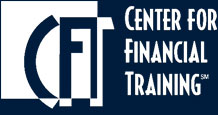During 2009 and 2010, Congress and the Federal Reserve Board made massive changes to the Regulation Z rules that regulate open-end credit. Since that time the Consumer Financial Protection Bureau (CFPB) inherited the regulation and has not made any additional changes to the rules. But questions and problems continue to plague those who offer open-end credit. By following basic procedures these concerns can be eliminated.
The rules for open-end credit require action before, during and after opening an account. Disclosures are required when opening an account, for each billing cycle and when changes are made. There are very specific rules for resolving errors. Specific guidance is provided for applying payments and for handling credits.
Open-end credit can be secured or unsecured. The credit may be accessed by card, check or by other means. Disclosure and other rules vary depending on the method of access and the presence and nature of collateral. Disclosures tend to come from more than one source, for example loan origination software and core accounting systems. Often errors occur because the set up of the two systems lack consistency.
Errors can result in civil liability, enforcement actions and reimbursements. Damages are often substantial because errors tend to systematic errors, where the system makes the same error on a consistent basis.
This two-hour program focuses on the basic rules for open-end credit. If a financial institution offers any form of open-end consumer credit staff members need to understand the basic rules that govern the product.
Covered Topics
- What is Open-End Credit;
- Coverage and Exemption rules;
- General Disclosure Requirements;
- Account Opening Disclosures;
- Periodic Statements;
- Subsequent Disclosure Requirements;
- Treatment of Credit Balances;
- Special Rules Related to Credit Cards; and
- Billing Error Resolution
Who Should Attend?
The program is designed for management of the loan department, Compliance Officers, lenders, processors, marketing staff and auditors
Continuing Education (CE) Credits
This webinar is recommended for 2.5 CE Credit Hours. Each attendee will receive a Certificate of Attendance for self-reporting of CE Credits.
